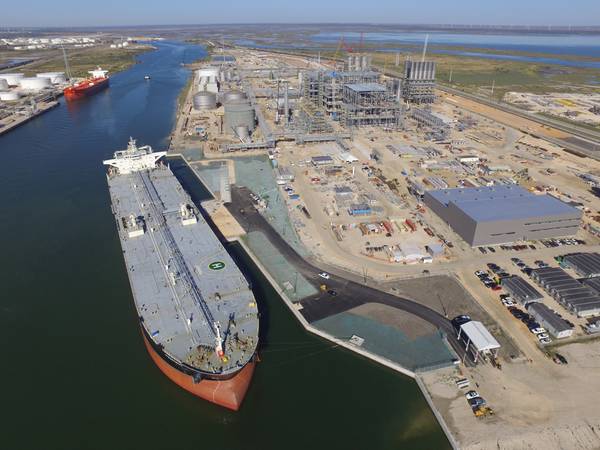
U.S. crude exports to Asia, which have slumped due to record freight costs, stirred on Thursday as rates slid and the premium in Asia for Russia's ESPO Blend oil sent buyers back to U.S. grades, according to market sources.
Oil shipping costs for United States Gulf Coast to Asia cooled this week from record highs on the prospect of more vessels becoming available. Nearly 300 oil tankers globally were placed off limits due to U.S. sanctions on Iran and Venezuela.
Seventeen supertankers returned to service in October after being sidelined for overhauls, as 11 entered drydocks. That was the first overall increase in available ships since May, according to shipbroker McQuilling Services.
Exxon Mobil Corp provisionally chartered the Very Large Crude Carrier (VLCC) KHK Empress to transport crude from the U.S. Gulf Coast to Singapore for $11.5 million, or $5.75 a barrel, according to four market sources. Exxon declined to comment.
Trafigura AG also tentatively booked the Ascona to ship U.S. crude to South Korea for $12.9 million, or $6.45 a barrel, three market sources said. Trafigura had no immediate comment on the charter.
Both were below rates of between $16 million and $17.5 million, or $8 to $8.50 per barrel, quoted earlier in the week for U.S. to Asia routes, shipbrokers said. Assessed rates peaked on Friday around $11 a barrel.
Arbitration opportunities to ship U.S. crude to Asia also have emerged with Russia's ESPO Blend crude climbing to record premiums in the last month, dragging other grades sold in Asia higher, traders said.
The price of WTI delivered into Singapore was assessed on Thursday at more than $5 a barrel over dated Brent, covering freight costs and providing some margin, traders said.
"Asia needs oil. It's the shortest region globally. They will pull (the arbitration window) open," a U.S. trader said.
In addition to U.S. sanctions on Chinese tankers that crimped supply, some vessels have been drydocked awaiting exhaust scrubbers to meet regulations that take effect on Jan. 1. Those regulations ban ocean-going vessels from using fuel with sulfur content above 0.5% unless they are equipped with the scrubbers.
The return of some tankers into service could signal a further drop in global oil freight rates. Another factor affecting demand was refiners including China's Sinopec cut runs and a series of failed charters adding to available tonnage, said Oliver Ge, a senior advisor at McQuilling Services.
Reporting by Collin Eaton



